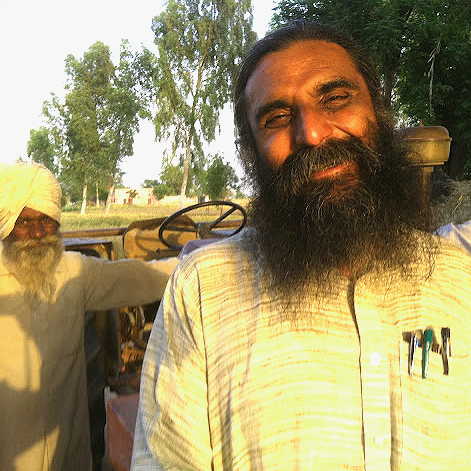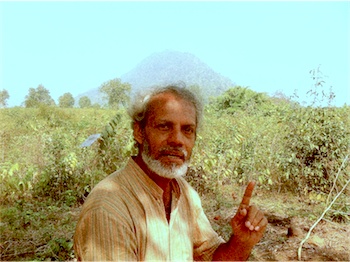Rural folks' cancer deaths are less talked about than their suicides, but the scale and causes are the same.Since 1997 Dr Debal Deb has been conserving 700 varieties of native rice that seed companies are trying to drive outAnshu Gupta's volunteers driven Goonj, collects, sorts and distributes clothes for the poorFor over a 100 years Olcott Memorial High School in Chennai has been giving free education to the poor.
Birds and animals, share with man an equal anxiety for food and shelter. They hunt and gather and build nests or lairs. But it is clothes that give us our distinct human identity. We titter at naked people. We may not on a street, be able to distinguish hungry or homeless ones, but an unclothed one? Why, that'd unnerve us.
Everyone somehow scrounges a garment or at least a rag to claim human-hood. Since naked people are a rare sight, problems of clothing are not readily apparent to us.
They were not apparent to Anshu Gupta either- not for a long time. But when the point went home eight years ago, it did with a vehemence that he has not quite recovered from yet. He is a man obsessed with the issue of clothing and our ways with it, our ignorance of it. Today he has a large and growing movement. You can participate in it with little cost of time and money and make a huge difference, in giving fellow Indians some dignity.
Fighting it out, finding a place:
Influences on him came over several years. First was the stock he comes from. Anshu was born in Meerut in 1970, to Shiva Das Gupta, a civilian employee of the armed forces and his wife who was the daughter of a post office employee. They had three children and money was always short. But idealism wasn't lacking. Anshu's grandfather had a small business, which he gave up to follow Gandhi.
Neither did they lack grit. At work, Shiva Das had been framed and sent home, pending an enquiry. It took him an year but he fought back to clear his name and get his job back. "But that one year was enough to get into a debt trap that took us 15 years to come out of", says Anshu. "Most people don't have any idea how families without steady incomes, cope to keep their body and dignity together." He saw his father come through, walking upright. Anshu was ten.
In another seven years, he was himself to add to his father's woes. Multiple fractures sustained in a road accident kept him in a hospital for an year. The army's medical aid did not extend to its civilian employees so the family had more bills to pay. Father had no resentment of the fresh debts piling up; he was melancholy because doctors feared Anshu may not walk again.
"I will be a writer," he reassured his father. His first piece in Hindi was published in Sapthahik Hindustan, even as he lay recuperating. Impressed, father made several sorties to the Indian Institute of Mass Communications [IIMC] to get his son admitted. [By the way, Anshu has since walked tens of kilometres in the hills].




